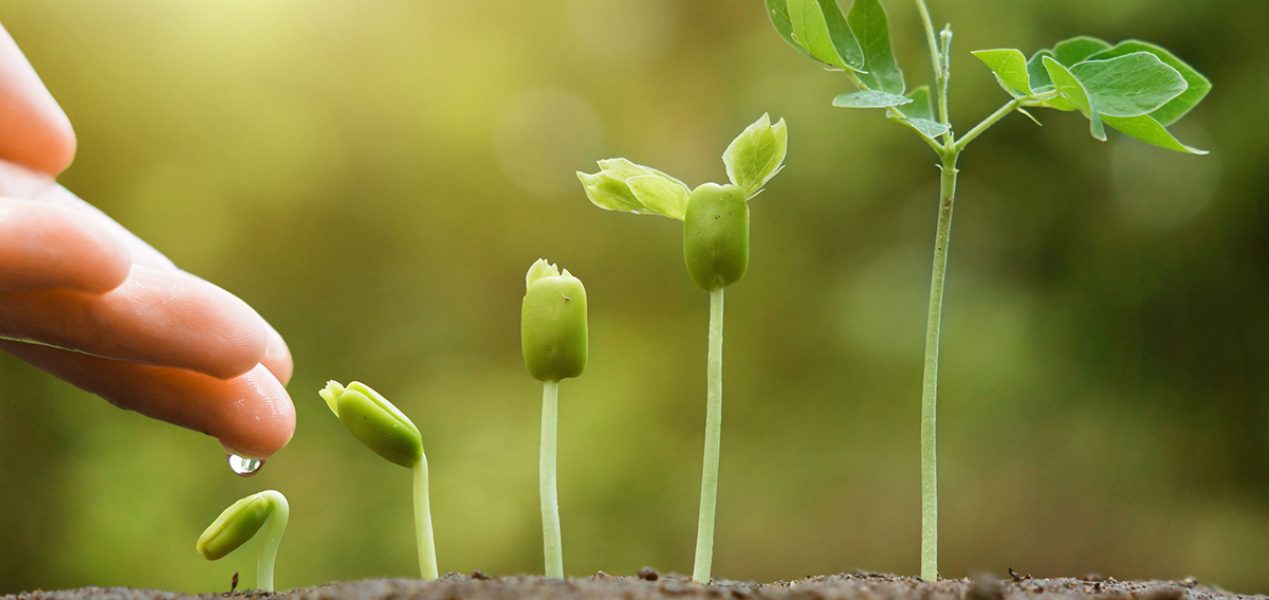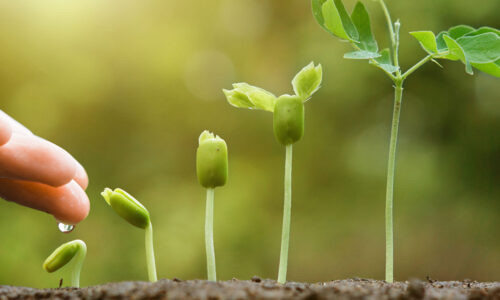Of the elements that have boosted modern agricultural development the most, biostimulants absolutely deserve a place of honour.
Without them, agricultural products would grow less vigorously, harvests would be smaller, farmers’ profits would decrease, and produce would arrive on consumers’ tables in worse condition than they do today.
At Barcelonesa, we develop a wide range of essential biostimulant products for agricultural inputs companies.
With this article, we will show you why biostimulants are so needed in this day and age.
What are agricultural biostimulants?
Though use of the term “biostimulant” is fairly recent, the use of products and techniques aimed at stimulating crops —with the goal of achieving more profitable agricultural production and better yields— is as old as agriculture itself.
Throughout history, people have used different methods to stimulate the growth of plants, however the term “biostimulant” wasn’t coined until last century, specifically the 1990s.
To better understand this concept, we must first differentiate between agricultural biostimulants, fertilisers, and plant protection products, since even though these are all supplementary products, they are not the same:
- Fertilisers: substances used in agriculture to provide nutrients needed for plant growth.
- Plant protection products: the purpose of plant protection products is to protect plants from external agents such as weeds, bacteria, insects, pests, or animals in general which could kill off a crop or even compromise the storage or transport of the agricultural products post-harvest.
- Biostimulants: inputs whose purpose is to increase agricultural productivity and profitability. Regular use of biostimulants improves the quality of agricultural products, making them healthier and more affordable, in addition to contributing to enhanced sustainability of the agricultural sector in general.
Basic characteristics of agricultural biostimulants
Now that we’ve seen how biostimulants, fertilisers, and plant protection products complement each other to guarantee higher agricultural yields, we’re going to explain the main properties of biostimulants:
- Bio-based: most biostimulants are obtained from micro-organisms and organic substances that are frequently found in nature, such as marine algae, soy, crustaceans, or lemons.
- They foster robust health and growth of plants: their excellent capacity to increase crop yields —thereby improving production and profitability— make biostimulants absolutely essential to modern advanced agriculture.
- Highly varied biostimulant technologies: some biostimulants function as a sole technology while others need to be combined with various other technologies in order to reap the expected results.
- They are applied in small quantities: unlike fertilisers, which are often manufactured in large quantities due to their elevated use in any agricultural production process, biostimulants are used in small quantities. Just a few litres or kilos of product can biostimulate a significant number of planted hectares.
- They increase tolerance to both biotic and abiotic stress: biostimulants help plants tolerate problems such as water scarcity, salinity in irrigation water, or even extreme temperatures. Crops treated with biostimulants will better withstand these types of negative impacts.
- Biostimulants are not considered pesticides: They activate the natural defence mechanisms of plants. Since they cannot actively fight off pests, biostimulants are not legally identified as pesticides.
The main benefits of using biostimulants
It is obvious that there are numerous advantages throughout all the links of the value chain:
- For farmers: biostimulants make their crops more sustainable and profitable. What’s more, they encourage the absorption of other inputs, meaning farmers don’t have to spend as much as they used to on fertilisers or plant protection products.
- For intermediaries and wholesalers: because biostimulants yield higher quality crops, once picked, these withstand the storage and transport process better.
- For end consumers: crops that have been treated with biostimulants produce healthier foods from more sustainable farms. In addition, savings on the farmer’s side results in a lower final sales price.
Barcelonesa’s biostimulants
In Barcelonesa agro-chemical department, we have an extensive portfolio of solutions focused on nutrition and agricultural biostimulation.
Our main products are as follows:
- Animal-derived amino acids: amino acids with the highest content of organic nitrogen. They are produced through alkaline hydrolysis and have an excellent biological activity in plants.
- Plant-based amino acids: a biostimulant exclusively sourced from plant materials, this product offers exceptional results thanks to its elevated free amino acid content.
- Algae extract: algae from the Ascophyllum nodosum variety spends half the time submerged in water and the other half in the open air. This leads the algae to accumulate metabolites that grant it a greater capacity to withstand all kinds of inclement conditions. These active compounds, thanks to the unique low-temperature extraction process, are retained within the end product used in agriculture, and thereby offer very positive results.
- Basic substances such as lecithin and chitosan.
- Amino acids such as Lysine, Glycine Betaine, and Glutamate.
Barcelonesa and agricultural biostimulants
As you can see, biostimulants are essential to making agriculture more profitable.
If you’re interested in learning more about these kinds of products aimed at the agro-chemical industry, you can contact our specialized department by clicking on the lower button of ‘more information’.


